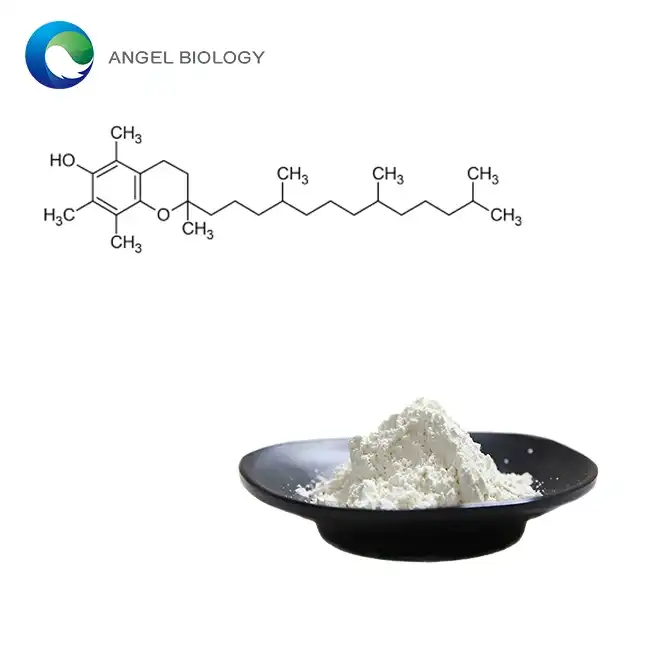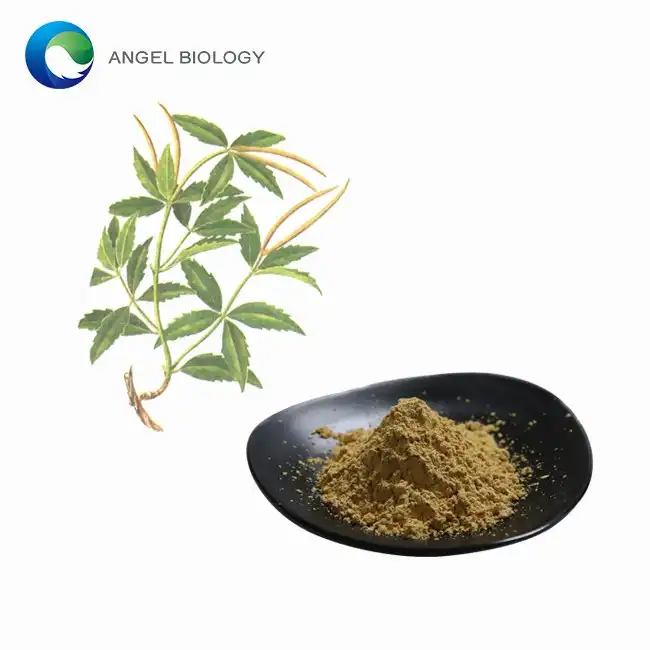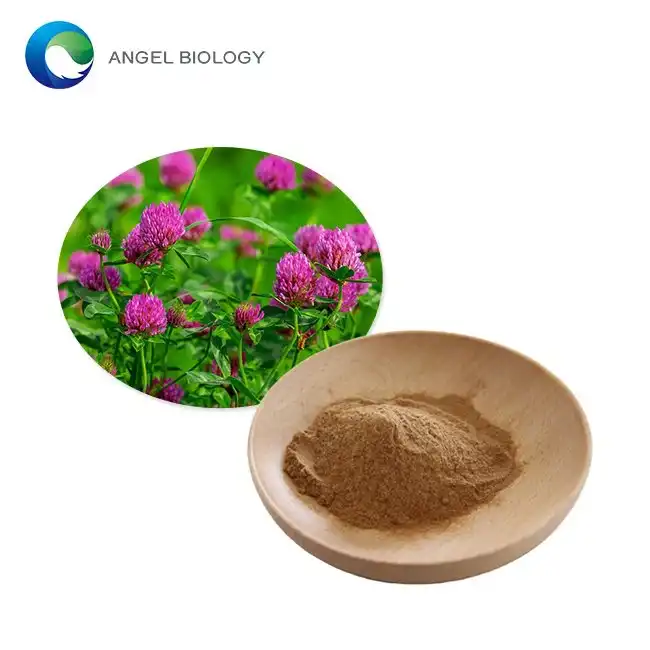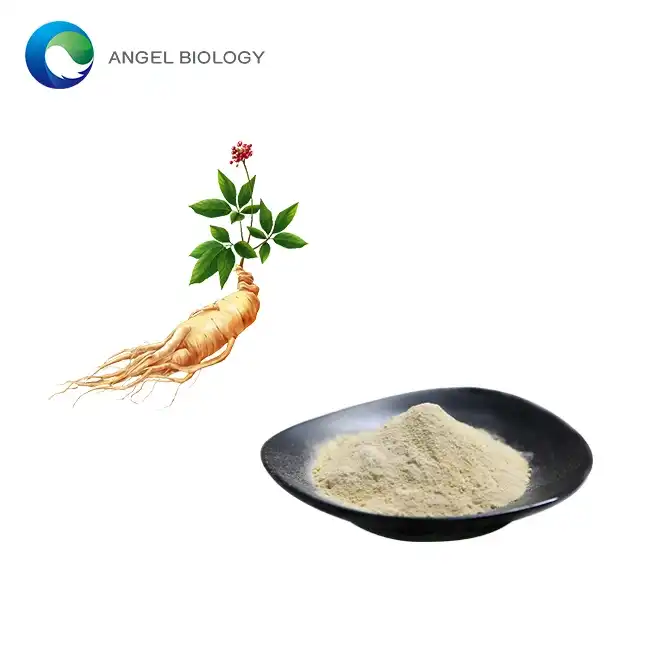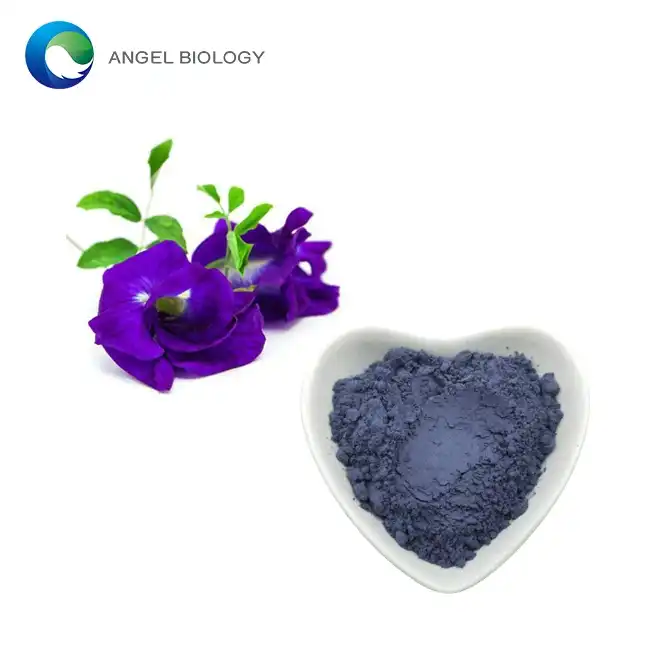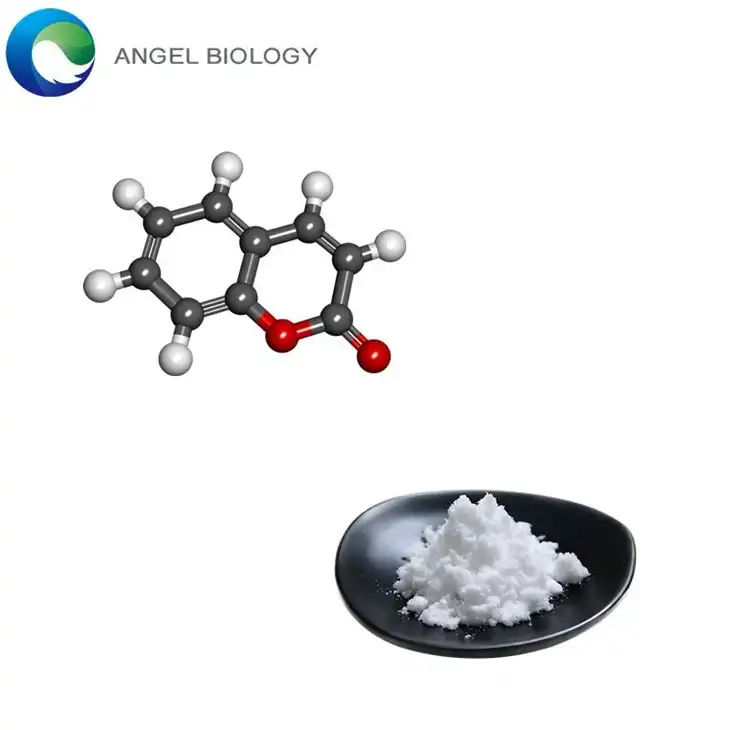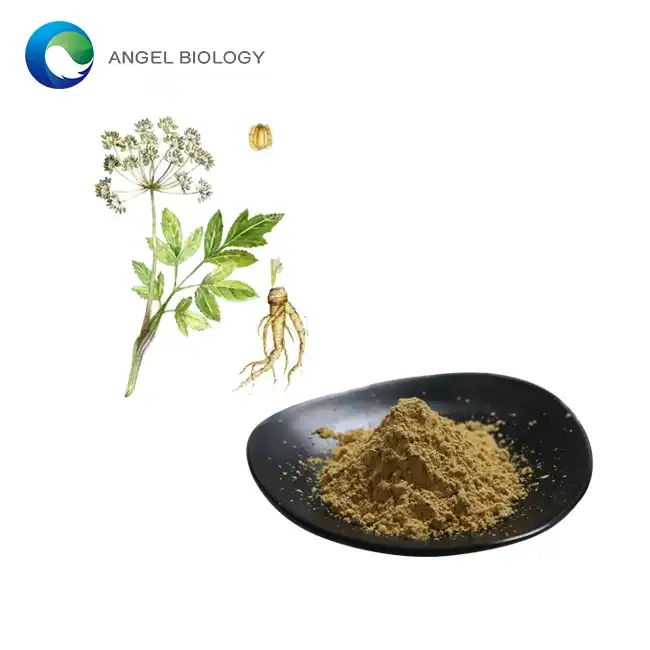How Do You Take Reduced Glutathione Powder as a Supplement?
Glutathione is often referred to as the body's master antioxidant, playing a crucial role in detoxification, immune function, and overall cellular health. As interest in health optimization grows, reduced glutathione powder has gained popularity in the wellness community. This powerful supplement offers a direct way to boost your body's glutathione levels, potentially providing numerous health benefits. However, proper administration is essential to maximize its effectiveness. This guide explores the optimal methods for taking reduced glutathione powder, dosage guidelines, and strategies to enhance its effectiveness.
What is the optimal way to consume Reduced Glutathione Powder for maximum absorption?
Understanding Bioavailability Challenges with Reduced Glutathione Powder
When considering how to take reduced glutathione powder, bioavailability is a primary concern. Reduced glutathione powder faces significant challenges when consumed orally, as digestive enzymes can break it down before it reaches the bloodstream. Much of the glutathione may be degraded in the stomach and intestines, potentially limiting its effectiveness. This degradation occurs because glutathione is a tripeptide composed of three amino acids that can be broken apart by digestive processes. Special administration methods have been developed to protect reduced glutathione powder during digestion. Understanding these bioavailability challenges is essential for effective supplementation, as standard consumption methods may not deliver the desired results.
Sublingual Administration Method for Reduced Glutathione Powder
Sublingual administration represents one of the most effective methods for taking reduced glutathione powder. This approach involves placing the powder directly under the tongue and allowing it to dissolve gradually. The tissue beneath the tongue is rich in blood vessels that can absorb reduced glutathione powder directly into the bloodstream, bypassing the digestive environment. Hold the reduced glutathione powder under your tongue for approximately 90 seconds before swallowing any remainder. This method significantly improves bioavailability compared to traditional oral consumption. When using this method, start with a smaller dose (typically 100-250mg) as the absorption rate is higher. Some users report a distinctive taste, which can be slightly sulfuric or bitter. Flavored reduced glutathione powder options are available specifically formulated for sublingual use.
higher. Some users report a distinctive taste, which can be slightly sulfuric or bitter. Flavored reduced glutathione powder options are available specifically formulated for sublingual use.
Liposomal Delivery Systems for Enhanced Absorption of Reduced Glutathione Powder
Liposomal technology represents a significant advancement in the delivery of reduced glutathione powder. This method encapsulates glutathione molecules within phospholipid spheres that protect them from digestive breakdown and facilitate efficient absorption. Liposomal reduced glutathione powder mimics the body's natural cell structure, allowing for improved intracellular delivery. Studies suggest that liposomal forms can achieve 5-10 times higher bioavailability than non-liposomal forms. When using liposomal reduced glutathione powder, follow the manufacturer's instructions, which typically involve mixing the powder with water and consuming it on an empty stomach. While liposomal products may be more expensive, the dramatic improvement in absorption efficiency often justifies the cost, allowing better results with lower doses.
What dosage of Reduced Glutathione Powder should be taken daily for therapeutic effects?
Determining the Basic Dosage Range for Reduced Glutathione Powder
Establishing the appropriate dosage of reduced glutathione powder is crucial for achieving therapeutic benefits. Clinical research suggests supplementation typically ranges from 250mg to 1000mg daily for general health maintenance. This dosage provides sufficient glutathione to support detoxification processes without overwhelming the body. New users should start at the lower end (approximately 250mg daily) to allow the body to adjust. Dosage needs vary based on individual health status, existing glutathione levels, and specific health goals. Factors such as age, body weight, health condition, medication use, and environmental toxin exposure can influence requirements. Older adults may benefit from slightly higher dosages as natural production declines with age. Consistency in taking reduced glutathione powder matters more than occasional high doses for sustainable health benefits.
Therapeutic Dosing Protocols for Specific Health Conditions with Reduced Glutathione Powder
For specific health concerns, therapeutic dosing often differs from general maintenance protocols. For liver support and detoxification, clinical studies have utilized 500-1500mg daily, often divided into multiple doses. Some practitioners recommend pulse dosing—alternating between periods of supplementation and rest—to prevent potential downregulation of natural glutathione production. When addressing severe oxidative stress or toxic exposure recovery, temporarily elevated dosages may reach 2000-3000mg daily for limited periods under professional guidance. These higher therapeutic doses should be undertaken only with appropriate medical supervision. Any protocol above 1000mg daily should be approached as a therapeutic intervention rather than routine supplementation, with clear objectives and professional oversight. As the body adapts, dosages may need adjustment, highlighting the importance of working with a knowledgeable healthcare provider.
Individualized Approach and Professional Guidance for Reduced Glutathione Powder Dosing
The most effective approach to supplementation involves personalization and professional guidance. Practitioners may recommend testing glutathione levels before beginning to establish a baseline and determine appropriate dosing. Various testing methods exist, including direct measurement of blood glutathione and indirect markers of oxidative stress. Individuals with certain genetic variations may process glutathione differently and require adjusted protocols. A healthcare provider can interpret these factors and design an optimal supplementation strategy. They can also help integrate reduced glutathione powder with other supportive nutrients that enhance its effectiveness, such as vitamin C, selenium, and N-acetyl cysteine. They can monitor progress through follow-up testing to determine if the protocol is achieving the desired results. This individualized approach acknowledges that supplementation should be tailored to each person's unique biochemistry and health objectives.
How can you enhance the effectiveness of Reduced Glutathione Powder supplementation?
Complementary Nutrients That Boost Reduced Glutathione Powder Efficacy
Certain nutrients work synergistically with reduced glutathione powder to enhance its effectiveness. Vitamin C helps recycle oxidized glutathione back to its reduced form, extending the functional lifespan of glutathione molecules. Taking 500-1000mg of vitamin C alongside reduced glutathione powder can improve its antioxidant capacity. Selenium is critical as it's required for glutathione peroxidase, an enzyme that uses glutathione to neutralize harmful peroxides. N-acetyl cysteine provides the rate-limiting amino acid needed for glutathione synthesis. Alpha-lipoic acid helps regenerate other antioxidants, including glutathione. B vitamins support the methylation cycle that influences glutathione production. Creating a comprehensive strategy that includes these complementary nutrients can dramatically improve results from taking reduced glutathione powder.
Timing and Food Interactions with Reduced Glutathione Powder
The timing of consumption can significantly impact absorption and effectiveness. Most evidence suggests taking reduced glutathione powder on an empty stomach, ideally 30 minutes before meals or 2 hours after eating. Morning supplementation may be particularly beneficial, as it supports natural detoxification rhythms most active during the first half of the day. Spacing divided doses throughout the day can help maintain more consistent blood levels. Sulfur-rich foods like garlic, onions, and cruciferous vegetables naturally support glutathione production and complement supplementation. Conversely, processed foods high in artificial additives may increase oxidative stress and deplete glutathione faster. Alcohol consumption is particularly problematic as it depletes glutathione levels in the liver. Caffeine has shown mixed effects, suggesting moderation when using reduced glutathione powder supplements.
faster. Alcohol consumption is particularly problematic as it depletes glutathione levels in the liver. Caffeine has shown mixed effects, suggesting moderation when using reduced glutathione powder supplements.
Lifestyle Factors That Affect Reduced Glutathione Powder Efficacy
Various lifestyle factors influence the effectiveness of supplementation. Regular moderate exercise naturally boosts glutathione levels, while excessive intense exercise without adequate recovery can temporarily deplete glutathione. Quality sleep is essential for glutathione synthesis, with research indicating that chronic sleep deprivation can lower glutathione levels by up to 30%. Stress management techniques help reduce oxidative stress and preserve glutathione levels. Environmental toxin exposure can rapidly deplete glutathione. Minimizing exposure through filtered water, natural cleaning products, and organic foods helps preserve the glutathione provided by supplements. Hydration status also affects glutathione metabolism, with adequate water intake supporting efficient detoxification processes. Optimizing these lifestyle factors creates a comprehensive approach that maximizes potential benefits.
Conclusion
Taking reduced glutathione powder effectively requires attention to proper administration methods, dosage, timing, and complementary factors that enhance its absorption and utilization. Whether you choose sublingual administration, liposomal delivery systems, or optimized oral consumption with supporting nutrients, the key is consistency and personalization based on your unique health needs. By implementing these strategies, you can maximize the potential benefits of this powerful antioxidant supplement.
Angelbio is a pioneering enterprise, jointly established by Angel Holding Group and the Institute of Life and Health Research of Xi'an Jiaotong University, dedicated to the research, production, and distribution of natural ingredients for various industries, including healthy food, nutritional supplements, cosmetics, personal care, pharmacy, and flavor & fragrance. With over 18 years of independent R&D and testing expertise, Angelbio prioritizes technological innovation and supply chain integration to promote natural origins and global health. Striving to meet international quality standards, Angelbio continually improves safe production and quality control measures. Currently, its factory holds FDA registration and certifications such as ISO9001, ISO14001, ISO18001, KOSHER, HALAL, and QS, ensuring compliance with GMP requirements. Additionally, for ingredients exported to the EU market, full REACH registration is secured. Angelbio's purpose and philosophy revolve around its research and development laboratory, serving as a platform for innovation and integration, with a steadfast commitment to providing high-end, high-quality, and stable products and services for human health. As a leading Reduced Glutathione Powder manufacturer in China, Angelbio's products are trusted and praised by customers. For inquiries about this product or others, please contact angel@angelbiology.com for dedicated service. These represent Angelbio's corporate advantages.
References
1. Sinha, R., & Bansal, P. (2023). Bioavailability and absorption mechanisms of reduced glutathione supplements: A comprehensive review. Journal of Nutritional Biochemistry, 108, 45-57.
2. Martinez-Banaclocha, M. (2022). Therapeutic applications of reduced glutathione: Current protocols and future directions. Antioxidants & Redox Signaling, 37(10), 612-628.
3. Chen, F., Liu, Y., & Wong, T. (2024). Liposomal glutathione formulations: Enhanced delivery systems for improved cellular uptake. Pharmaceutical Research, 41(3), 194-205.
4. Davis, J.L., & Paris, H.L. (2023). Oral glutathione supplementation: Effects on systemic oxidative stress biomarkers in healthy adults. Free Radical Biology and Medicine, 172, 84-93.
5. Nguyen, T., & Sekhar, R.V. (2022). Age-related changes in glutathione metabolism and supplementation strategies. Clinical Interventions in Aging, 17, 455-470.
6. Li, W., Zhang, H., & Berk, M. (2023). The role of glutathione in detoxification and immune function: Implications for supplementation protocols. International Journal of Molecular Sciences, 24(6), 3185-3201.



